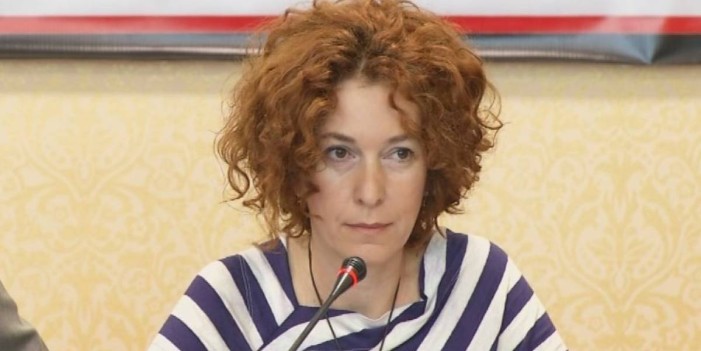
At the opening of a 2-day consultation period with civil society, EU Ambassador Romana Vlahutin stressed the importance of civil society as a “watchdog” of Albanian politics.
In comparison to previous years, we have decided to dedicate 2 full days to gathering your input, also written contributions.
We want to work hand in hand with civil society. You have a crucial role in giving voice to all Albanian citizens and hold institutions accountable.
In this process, the role of civil society as watchdog and gatekeeper is vital. These consultations represent a key moment for you to reflect on the progress and to identify areas of improvement or backlash. You have the on-the-ground knowledge that is of essential importance for our capacity to understand the country’s real progress.
The active involvement of civil society – which Prime Minister Edi Rama previously declared “dead” – in the European Commission’s progress report, which will be covering a longer period than usual, due to the postponement of the publication of the report to April 2018, shows a new approach of the EU. The previous reports did not involve extensive consultation with civil society and were therefore less a reflection of the “country’s real progress,” and much more a projection of the government’s wishful thinking and propaganda.
This move of the EU also shows that it may want to protect itself from a backlash similar to the one that followed its previous “conditional recommendation” to open accession negotiations, which was heavily amended by the European Parliament. Several member states have recently been openly and strongly critical of the Albanian government.
At the same time, it also seems to avoid the appropriation of the report by the Albanian government for propaganda purposes, by stressing the report is “from the Commission to the Council,” which also has the power to decide on the steps.
It is a report from the Commission to the Council, so that Member States can assess the countries’ progress and discuss the Commission’s recommendations. Any decision regarding the next steps of Albania towards the EU is taken by the Member States, on the basis of the recommendation of the Commission.
How is this done ? Commission collects information from many sources: government, Delegation, member States, civil society, International organisations, business, core DGs missions, peer missions, sectoral report, compliance review, all of this collected, cross-referenced and corroborated.
The 2018 Report for Albania will be very important. Last year, the Commission made a conditional Recommendation for the opening of negotiations, given that progress is achieved through 2017. This concerns decisive steps on justice reform, including the vetting – but also credible and consistent progress in the fight against organised crime, including against cannabis cultivation and trade, fight against corruption, reform of the public administration and protection of fundamental rights.
Everything of course now depends on which NGOs will show up at the consultations, and who has funded them in the past.

